Someone wants to know why I don’t open up the sacred space of my cyber ceremony to critical debate? I do not bow down before the false god of academia. I am a dyslexic poet. I answer only to Grandfather Coyote and his high holy cadre of spiritual cohorts. If someone wants to enter into a celebration of creativity, well then… let’s dance! But understand all you intellectuals and academicians out there, all of your credentials and education will not help you here. Here, in the realm of Firebird Ceremonies you venture into the sacred space of a Heyoka Coyote Poet Warrior. Careful, because for all the years that I have been honed against the stone of Allah (Ouch!) my pen was at my side; perhaps it has developed an unusual edge. And remember, Grandmother Moon and a spit fire platoon of Ancestors are covering my donkey. I will gladly pit one humble man up against all you highly educated persons out there: and my beloveds name is Hafiz. Let our hearts all be imbued with the sacred sanctum if his holy verse!
I pit fire without the use of a modern kiln, estranging me from the process, because I know how to pit fire, period. I do not have an inordinate amount of breakage because I know how to stop, and ask, and listen, and wait; days, weeks, months, or years if that’s what it takes, and then to humbly accept the gift, in whatever form it comes.
Feel free, all takers, to email me a poem, wrung from the marrow of your ancestral bones; pulsing, hemorrhaging, and oozing with passion for the position you take. I am not asking for what you can prove on paper. But where do you stand in your heart of hearts, and from there, can you truly claim that you know how to and do pit fire your pots? Just how slowly must the fire approach, embrace and kiss the raw clay for the pots to survive that magnitude of unbridled power? If you do not know the answer to this question, you do not know how to pit fire. If on the other hand your overshadowing concern here is “market appeal” and productivity; then yes of course, pit finishing is indeed the correct process for you to employ.
There is a song written by June Carter and Merle Kilgore, sung by Johnny Cash, it expresses very well the magnitude of Love and passion that I feel for my work. I have a profound willingness to sacrifice for and be consumed by this love. The song is called: Ring of Fire. Another song, one he wrote himself, speaks volumes about my relationship with the sacred work that I do. It is called: What Do I Care.
Warn out, academic, fixed railed, disconnected from the land “thinking”, has contributed greatly to this disastrous global situation we are in. This, “I’m right, because I have the paper that says so!” attitude won’t fly here.
Ah, but what does the heart say?
It is the poetic spark of original creative thought, in us all, that will save our collective donkey!
Jump Your Tracks
Jump Your Tracks
It happened back in the good old days of homesteading Quietude Pottery in Alaska that I dealt with the fixed rails of bureaucracy. After cutting the lines, building the cabin and living on the land for three years, a surveyor was called. He measured, calculated and documented the reality I called home. When at last his work was done and the map arrived, I noticed that his plotting was flawed. He had oriented the rectangular, 17.5 acres of my homestead east to west, not north to south. I realized that at some point down the line this would become a problem. So, I went into the land office to explain the situation. I was assured numerous times that the surveyors map was not and could not possibly be wrong. This paper was, for them, reality. There for, in their minds, I must be wrong. Over and over I explained the situation: the reality of the land and my intimate relationship with it. Over and over she insisted that the reality of the paper overrode my unfounded belief in my own personal experience on the land. At some point she must have jumped her tracks: because the surveyor would indeed be called back. As for his findings, suffice it to say, that the reality of the land surely does trump the so-called reality of their paper world.
This week I have been accused of using a term that does not exist. The term “pit finished ceramics”, I am told, does not exist because it has no “scholarly credibility”. It has never once been published, anywhere, therefore, from an academic point of view it does not exist. I have never once been accused of being an academic, ever, therefor I am not. I am a dyslexic poet. The term “pit finished ceramics” I assure you exists, because I myself coined and published it on my humble little blog, just last week!
The river does not follow,
the train upon its tracks.
It is the tracks,
that follow the stream.
Only the river is free,
to change it’s course.
Last week in the infinite wisdom of the dream time, I grabbed hold of the mane of an unbridled horse, flung myself upon his wild, naked back and rode. I could see the river flowing free and the tracks of the train beside it heading south. I ride upon the back of an unbridled horse: not even the banks of the river shall contain me, for I am free!
Elohim, Ants and Arugula
I just must take a moment here to give thanks for the simple and lovely fact that the greenhouse ants do not seem to care for spinach. These are the regular type of large red ants. They are not the really huge headed reds that Moon and I see out walking in the desert. I love them all. But it is a special pleasure to watch the greenhouse ants harvest the kale and carry it home. These days, now that we are hitting the low 90’s, it is dry by the time they get it home. Super organic homegrown kale makes for healthy happy ants. But I must admit that I was a little miffed at how hard they hit the arugula seed pods! Perhaps they have plans to do a little farming of their own! I am every bit as fond of the incredible intelligence of the arugula seed as I am my precious friends the ants. The arugula seed knows how to wait. They will sit all summer out, right there on the scorching earth, rain or no and wait. Perhaps a really late summer /fall or very early winter rain will come! And then there will be an arugula wide burst of creative energy. We can learn a lot from the patience and utter brilliance of the ant and the arugula seed.
In love, under the full Moon.
Borrowed Plumes
Borrowed Plumes: “Pit Fired Pottery” Verses “Pit Finished Ceramics”
There is a very clear and fundamental distinction between “pit fired pottery” and “pit finished Ceramics”. This distinction has not been clearly made by Dawn Whitehand in her new book Pit Firing Ceramics: Modern Methods, Ancient Traditions. (Schiffer Publishing, 2013) Once a piece of raw clay has been bisque fired, in the controlled environment of a modern kiln, it can no longer be considered pit fired. It is no longer clay; it already is pottery and is now, by definition, being “pit finished”. This so called “pit firing” process has been reduced to a decorative surface technique. Americanized raku, saggar fired and pit finished ceramics all have this bisque fired element in common. Certainly, it is just as legitimate a firing technique as Americanized raku or saggar firing but it is not pit firing. The willingness to surrender to and participate fully with the transformative power of the savage element of fire is basic to the pit firing process.
Case in point: we refer to many forms of pottery as being hand made, but we make clear distinctions between; hand built, wheel thrown, thrown and altered, slab constructed, coil built and the pinch pot. This clarity is informative and educational and serves potters, buyers and the uninformed public alike. To claim that pottery that has been fired in the controlled environment of a modern kiln is pit fired is misleading (and a disservice to everyone involved.) There is an inherent disregard in this type of nonspacific misuse of terms for traditional pit firing potters, past and present, who fire without the insurance policy of a modern kiln. This willingness to risk weeks or months of work for the integrity of the process must be honored. As potters we need to be honest and clear about what we are doing and participate in this educational process. When we see pottery being described as “pit fired” we need to ask the potter, “Was this pottery pit fired or pit finished?” If the answer seems unclear or lacking in transparency, we need to ask again, “Was this pottery bisque fired in a kiln before being refired in a pit?” There is no shame in pit finished ceramics unless its flight is dependent upon the borrowed plumes of truly pit fired pottery.
Savage: having a wild untamed nature, not domesticated, ferocious, fierce.
This Noble Thing
We run the risk of losing something here.
Something Noble.
Something Powerful.
A human being behaving like a god.
Interacting intimately with the Fire.
And the Earth.
Without the safety net of technology to break their fall.
The humblest lowliest kind of god.
One that bows down to the Earth and asks permission.
And weeps and wails.
At the horrible possibility of being denied.
That approaches the fire in humility.
Willing to be burnt for Beauty and Truth.
God help us.
If in our haste.
We lose.
This.
Noble.
Thing.
Winds of Change
Is it really worth the risk?
To sacrifice, yet another slice of our humanities?
To betray,
the original indigenous spirit that dwells within us all?
But we really admire the ones, who live upon this earth,
listening,
and conversating with the spirit of the Land…
But cannot be bothered with the actual details of that conversation.
“But if the wind blows, the pots will break.”
Stop. And listen to that wind.
“But if the pots break, the students will cry.”
Stop. And listen to that wind.
Once,
along time ago,
I watched a hawk soaring far above my head.
And listened.
And He spoke, to me!
I was seen, by Him, as a relative.
And so He spoke.
“You have to really love the wind, if you want to learn to fly!”
The Hungry Wind
So you say the Wind might blow?
Perhaps, the hungry Wind is starving.
Starving to be fed,
fed, on our beauty.
And we refuse.
And the belly of the Wind is gnawing at itself.
And still we refuse.
To feed the spirit of the Wind, the Land, and the Sea.
And we ourselves are starving
and clawing for beauty
and meaning in our lives.
And still,
we send all our beauty to the bank.
And the spirit of the Wind, and the spirit of the Land, and the spirit of the Sea,
are starving.
We ourselves are well fed.
And yet we starve.
Because the spirit of the Wind, and Land, and Sea
cry out for our beauty.
And we send it
All
to the bank.
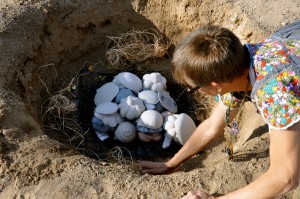
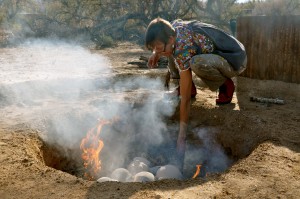
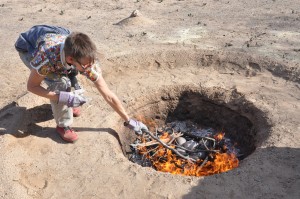
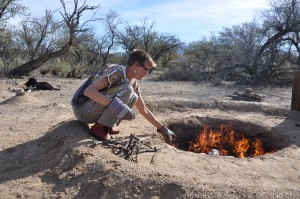
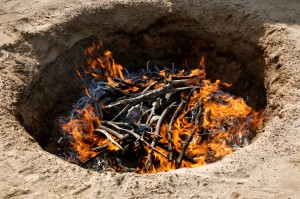
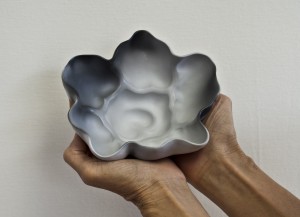
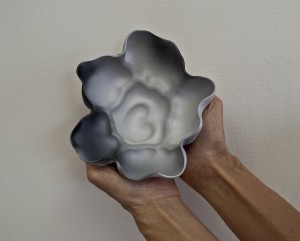
 RSS
RSS